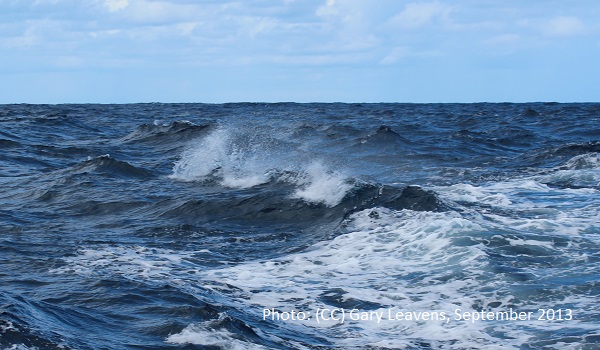Commentators have described a laudable “improvement” in reception management when comparing the response of the Spanish government to arrivals to the Canaries in 2020 and in 2021. Nevertheless, serious issues remain, including long-term stays in police custody, a lack of quarantine capacity, and the absence of solutions for 25,000 lone children on the islands. A spate of tragic deaths in recent days highlights once again the perilous nature of the Atlantic route, on which 936 people have lost their lives so far in 2021. After initially being pushed back to Morocco, several Yemeni asylum seekers have been permitted to enter the Spanish enclave of Ceuta.
Throughout 2020, reception infrastructure on Spain’s islands in the Atlantic was put to the test by the arrival of 23,000 people fleeing insecurity, economic crisis and persecution in North Africa. The Spanish ombudsman was forced to intervene when the government’s failure to decongest the islands left 2,6000 newcomers in overcrowded and insanitary conditions at the Arguineguín pier in Gran Canaria. Though arrivals to the islands in 2021 are more than double those seen in 2020, “the response of the Government of Spain has been radically different from last year”, says Amalie Klitgaard. The New Humanitarian photojournalist argues that improvements to the reception system have for the most part averted the sense of crisis and helped to decrease hostility and tension from locals. Key improvements noted by other commentators include the EU funded renovation of the Barranco Seco camp, a greater willingness of authorities to transfer people to reception centres on the mainland, and policy changes allowing people with documents to freely leave the islands for mainland Spain. This strategy – chosen as a pragmatic response to suspended return agreements – has effectively avoided overcrowding during the months of increased arrivals. Currently, the island camps are at 40 per cent occupancy with fewer than 3,000 residents. Nonetheless, police have resumed detention of people found in an irregular situation, suggesting people may not be able to escape transfers to centres even if they reach the mainland.
Despite improvements in reception management on the archipelago, problems remain. Critically, people are still frequently spending more than 72 hours in police custody, in breach of safeguards in Spanish law. There is also a lack of quarantine places, despite the fact that 90 per cent of arrivals have had close Covid contact or are themselves Covid-positive. The situation for unaccompanied children is highly concerning, with 25,000 minors still housed in 47 emergency centres. The authorities responsible for unaccompanied children on the Canaries have received only one-seventh of the funding needed for assistance, and only 193 children have been accepted for relocation by other Spanish municipalities. 1,400 young people are waiting the outcome of age tests.
During the night of 6-7 December, 52 people were rescued off Gran Canaria, nine of whom were hospitalised. NGO Caminando Fronteras announced that a baby, two women and a man died on this boat while trying to reach the Canaries. Though these tragic deaths are yet to be confirmed by authorities, they expose again the dangers facing people setting off to reach Spain. The Atlantic route has claimed 936 lives so far this year, 121 more than in all of 2020. This represents a fivefold increase in confirmed deaths over the last two years. A considerable number of the victims of this route were children:82 lost their lives in 2021 compared with only six in 2020. On 7 December, one person died on a boat of 19 that was rescued overnight: several others were hospitalised. Just days earlier, the UN Refugee Agency (UNHCR) commiserated the deaths of five people who drifted off Mauritania for five days. On 2 December, 283 people were successfully rescued from five boats off Fuerteventura, but one baby lost their life. ECRE member the Spanish Red Cross invest considerable resources in identifying the bodies of the victims of these shipwrecks, a task which sometimes proves impossible. By the end of November, the Red Cross had recovered 79 bodies on the Canary route in 2021. However, most of the dead will never be found. Since mid-June, Caminando Fronteras has assisted 570 families in tracing people missing, while the Red Cross has received 359 search requests.
Five Yemeni men swam to Ceuta from Morocco on 4 December to seek asylum in Spain. Two of the asylum seekers were promptly pushed back, despite having made clear their desire to seek asylum. They were then denied re-entry to Morocco and left to spend the night in no man’s land. The next day the two were finally permitted entry to Spain after the NGO the Association Marocaine des Droits Humains (AMDH) and UNHCR drew attention to their case.
For further information:
- ECRE, Atlantic Route and Spain: Multifaceted Insecurity Drives Dangerous Journeys, Women Flee Violence, Ceuta Closes Case of Child Pushback Victim, December 2021
- ECRE, Atlantic Route and Spain: 29 Deaths in 10 Days, Boat-Driver Convicted, Morocco Returns People at Sea, Palestinians Seek Asylum at Barcelona Airport, November 2021
Photo: (CC) Gary Leavens, September 2013
This article appeared in the ECRE Weekly Bulletin. You can subscribe to the Weekly Bulletin here.

